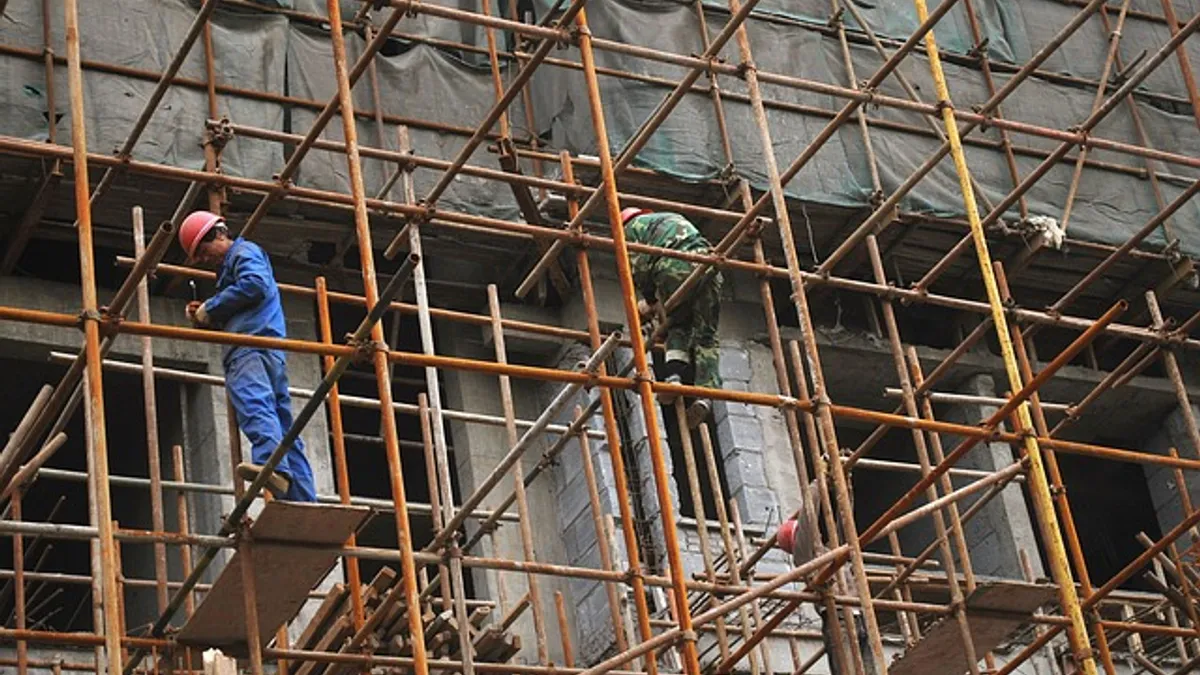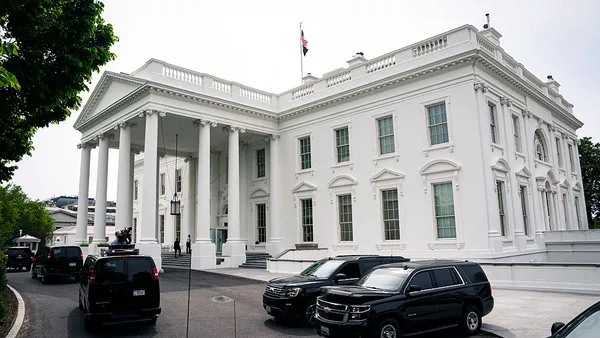Dive Brief:
- A chief administrative law judge has upheld the willful and serious safety citations and $249,900 fine that the Occupational Safety and Health Administration issued New York contractor Flintlock Construction Services in 2013.
- OSHA said Flintlock put workers on scaffolding for a 23-story hotel project in Manhattan in danger of falls up to 26 feet by not providing adequate fall protection.
- Flintlock contested the citations and fine, maintaining that corporate executives did not know about some of the fall hazards and that the company attempted to correct conditions.
Dive Insight
Judge Covette Rooney rejected Flintlock's arguments, deciding that Flintlock did know about the dangerous conditions and was in a position to order subcontractors to make sure the project site was safe, naming Flintlock "the controlling employer."
Robert Kulick, OSHA's regional administrator in New York, said Flintlock knowingly put employees at risk of falls, which are the leading cause of construction worker deaths. "Judge Rooney's decision upholds our findings and reiterates an important fact: Employers cannot ignore their legal responsibility to safeguard their employees and adhere to workplace safety standards," Kulick said in a press release.
OSHA has increased enforcement activity against contractors, particularly those related to falls, in the run-up to its 78% fine increase beginning in August. In one of its most recent notable cases, the agency cited and fined five contractors a total of $115,200 for a variety of safety hazards on a three-building apartment complex in Lincoln, NE. Most of the citations involved fall protection violations.
General contractors who may not be present on the job sites they manage — similar to the Flintlock case — have been facing increased scrutiny when safety violations occur. Last month, a New York Supreme Court judge found New York City general contractor Harco Construction guilty of manslaughter, criminally negligent homicide and reckless endangerment in the death of 22-year-old Carlos Moncayo, who died when an improperly shored-up excavation collapsed at one of the company's projects. District Attorney Cyrus Vance Jr. said that the decision showed that "managing a project from afar does not insulate a corporation or general contractor from criminal liability."














